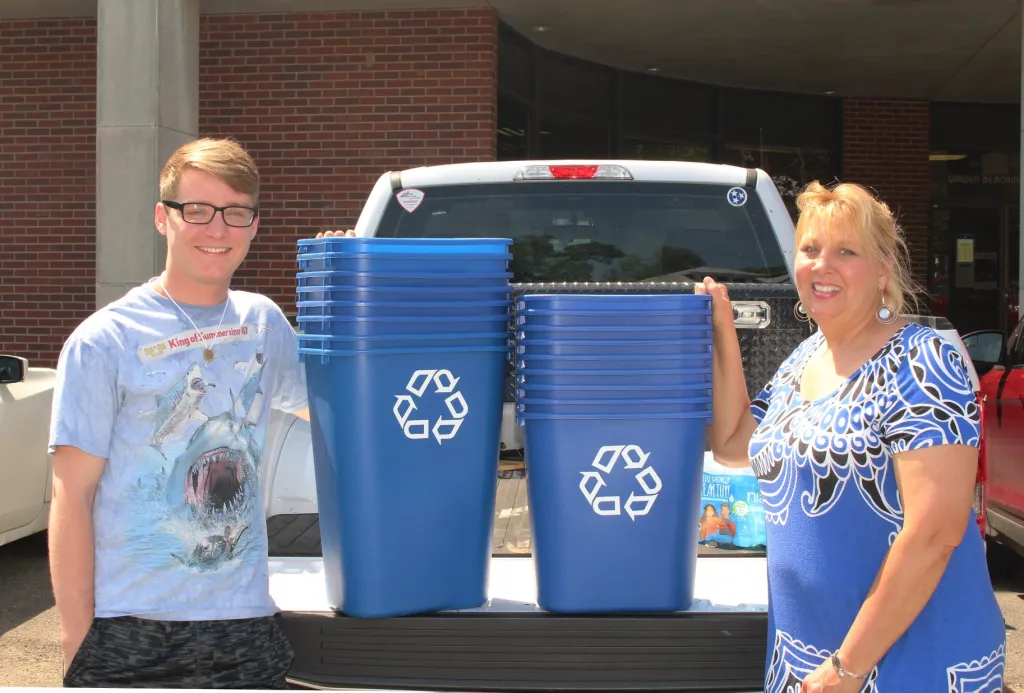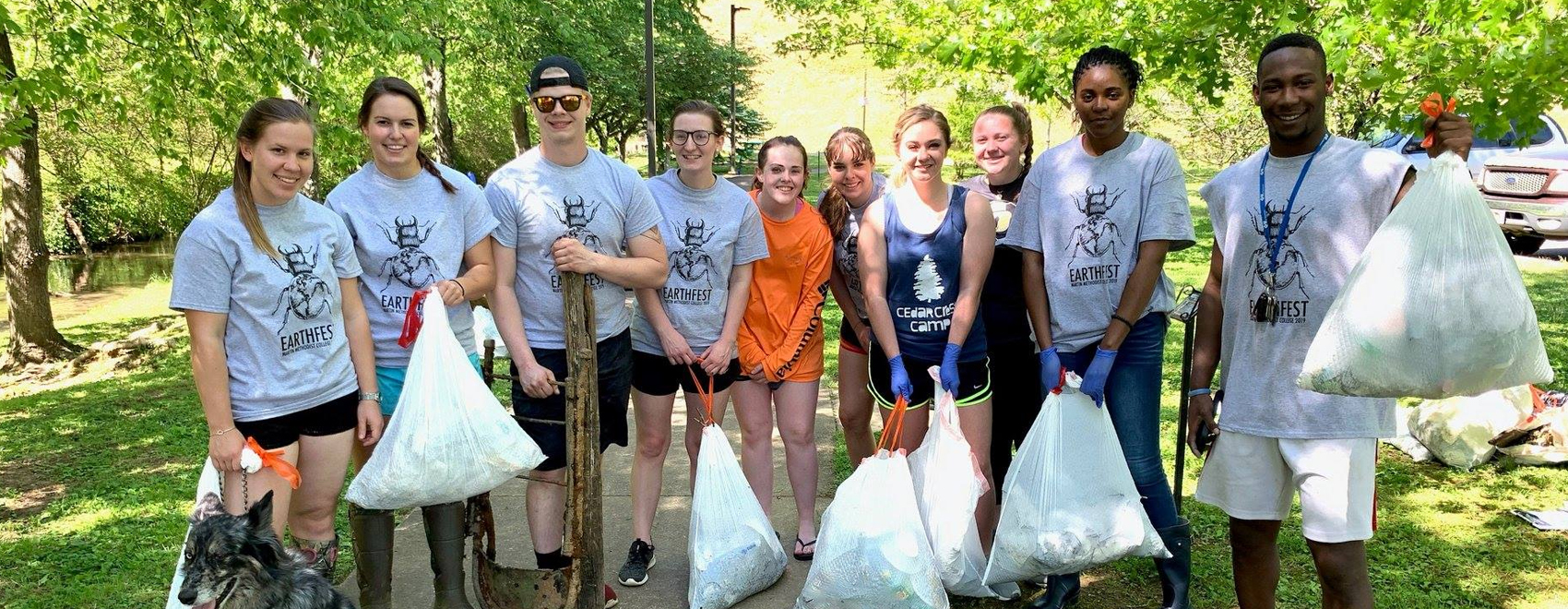A Way of Living
Sustainability is a way of living that rests on the principle that we can fulfill our human needs without degrading our natural environment. Sustainability efforts are driven by the belief that human needs can be met, economies can thrive, and our natural environment can flourish.
Campus Community
A variety of opportunities exist for the campus community to participate in and learn from the sustainability program. The following data may be analyzed:
- Overall campus energy usage.
- Reduction in energy usage through energy monitoring and operations of control systems.
- Solid waste generation and reduction.
- Recyclable materials generation and reduction.
- Effectiveness of water conservation measures.
- Effectiveness of water-filling stations on plastic bottle consumption.
Participation and Education Opportunities
UT Southern provides a model for Sustainable Development and offers opportunities to demonstrate sustainable living throughout the campus. The following are some initiatives that will be implemented over the coming years to assist the College educate students and the local community on positive efforts for sustainability.
Join the Club!

Are you looking to make a difference in the world around you? Are you interested in getting involved with the UTS Sustainability Club?
Native Garden
A native garden will be installed on the campus (*location to be determined) to demonstrate hardy native plants that can be used to replace delicate non-native ornamental plants. Typically, native plans are much more drought tolerant and resistant to diseases, reducing the need for chemical sprays, pesticides, and fertilizers that can pollute local water systems. In addition, native plants tend to encourage native pollinators, thus increasing the local biodiversity. Information will be posted throughout the garden offering information concerning its sustainable features.
Sustainability Contest
Students will be given the opportunity to participate in a sustainability contest to help them track their environmental footprint. Much like a fitness tracker, the sustainability app will help students track their water usage, waste generation, and carbon footprint. Students who meet their sustainability goals will be recognized at the College’s Annual Earth Day Festival.
Energy Usage Competitions
Celebration is an important part of the UT Southern experience. Whether it’s celebrating the local history and culture or movement towards greater sustainability efforts, celebrations are actively enjoyed on campus. UT Southern considers Earth Day/Week a time to reflect upon and celebrate our planet; as such, students are provided with an Earth Day concert on the main lawn featuring lively music, educational speakers, and success stories from the campus community.
Interdisciplinary Sustainability Minor
The Sustainability Minor at UTS (formerly MMC) is interdisciplinary, meaning that it draws on information and skills from different areas: of course the sciences like biology and chemistry, but also the areas of sociology, literature, history, ethics, philosophy, and religion. Each of these areas contributes to our understanding of sustainability as a whole.
Outcomes of the Sustainability Minor
Each student will be able to:
- Define sustainability.
- Explain how sustainability relates to their lives and their values, and how their actions impact issues of sustainability.
- Be able to utilize their knowledge of sustainability to change their daily habits and consumer mentality.
- Explain how systems are interrelated – social/political/ecological/religious/environmental.
- Learn how to apply concepts of sustainability to their campus and community.
Sustainability Minors have a total of 18 hours in sustainability coursework:
Everyone takes a 3-hour required course:
- SUST 101 Introduction to Sustainability
The additional 15 hours are made of up electives. Some of those electives include:
- BIO 310 Biology Seminar- Human Impacts on the Environment (2 hrs)
- BIO 317 Marine Biology (4 hrs)
- BIO 318 Conservation Biology (3 hrs)
- BIO 341 Ecology (4 hrs)
- CHE 322 Environmental Chemistry (3 hrs)
- ENG 421 North American Nonfiction Nature Writing (3 hrs)
- HIS 430 American Environmental History (3 hrs)
- HIS 433 American Environment in Film (3 hrs)
- REL 325 Introduction to Ethics (3 hrs)
- REL 372 Social Ethics (3 hrs)
- REL 391 Religious and Philosophical Perspectives on the Environment (3 hrs)
To explore if a Sustainability Minor might be right for you, reach out to your Academic Advisor or contact Dr. Shanna Hanes at shanes5@utsouthern.edu!


